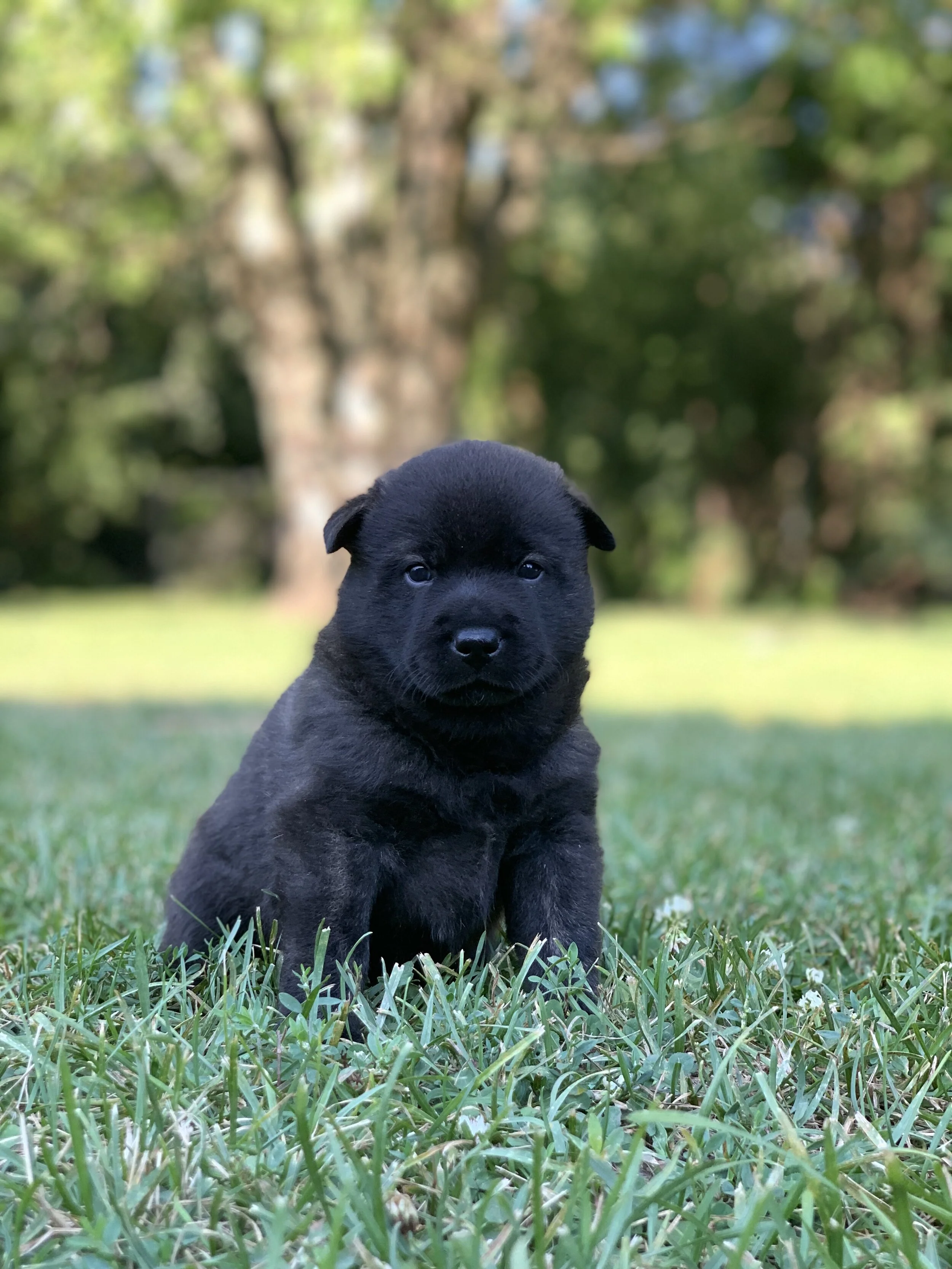Rogue River Reuven at 4 weeks old
I began as a Kai Ken pet owner, quickly fell in love with these amazing dogs, and subsequently became involved with breed preservation. What does breed preservation mean to me? Preserve, promote, and safeguard the Kai by only breeding healthy and health tested Kai that are sound in temperament and functional structure. I strive to make each breeding I do improve the overall health and quality of the Kai in the US. I look for conformity to the original Japanese Kai Ken Aigokai (KKA) breed standard and adhere to the American Kennel Club’s standards of ethical breeding practices. I am continuously educating myself to become a better dog owner, trainer, handler and breeder.
sachiko at 4 months old
In the Beginning...in Genesis 1:24 we read that God created the dog kind on the 6th day. From this canine ancestor comes the still wild canids like the wolf, coyote, jackal and fox, as well as the hundreds of domesticated dog breeds. Today the Canidae family includes 14 genera and 34 species. This diversity in species is possible because of a loss, redistribution or concentration of the genetic information in the original animals, due to natural mutations, selection, or, in the case of modern dog breeds, artificial selection.
Genetically, only subtle differences distinguish dogs from other canids and we don't know which ancient people had the first canid companions, but we do know in some ancient cultures, dogs were a vital part of man's very survival. The ancient dogs hunted alongside their human masters, they were loyal guardians of their herds, and watchful protectors while they slept. Dogs migrated with their human packs and the early migrants to Japan, the Jomon people, most likely brought dogs to the Japanese archipelago. Ancient buried remains in Japan include dog skeletons and skulls with long muzzles and shallow stops. These dogs were small, about the size of the present-day Shiba-inu. After the Jomon came the Yayoi period and a new wave of people and dogs from Asia. These dogs' skulls have a prominent stop and their frames are slightly larger. These groups of dogs are considered the ancestors of the Nihon-ken, the six native Japanese spitz type breeds found in Japan today. These are the Akita-inu, Hokkaido-ken, Kai-ken, Kishu-ken, Shikoku-ken, and the Shiba-inu. The isolated nature of the mountainous regions in Japan preserved the genetic integrity of these indigenous breeds and is the basis for most of their breed names. The Kai being found in the mountainous region of Kai, modern day Yamanashi Prefecture.
The original Japanese Kai Ken registry, the Kai Ken Aigokai (KKA) describes the Kai as intelligent and loyal, with a spirited boldness, qualities that are common to all six of the Nihon-ken. My experience has been that Kai have a sense of calm dignity, combined with a natural curiosity and playfulness that make them wonderful companions.
I am committed to the health and welfare of the Kai Ken in North America. I am continually learning from my Kai and strive to pass on what I have learned to others who are considering making a Kai Ken a part of their family. My primary goal is to train and do activities with my Kai so they are well-behaved and happy members of our family and society. I contribute to preserving and improving the quality and health of this rare breed in the United States by extensively health testing my Kai and being transparent with the results. I believe that genetic diversity and health testing are inseparable to ensure the continued health of any breed. Another of my goals is to help people who are considering adding a dog to their family determine if this is the right breed for them. If we determine a Kai will be a good fit for you, your family and your lifestyle, I will carefully match you with the right puppy and work hard to provide you with a healthy, well-socialized, well-mannered little Kai.
I am constantly exploring ways I can showcase the Kai's natural abilities and share my enjoyment of the breed. Thanks for visiting, feel free to call if you have any questions.
~Becky

